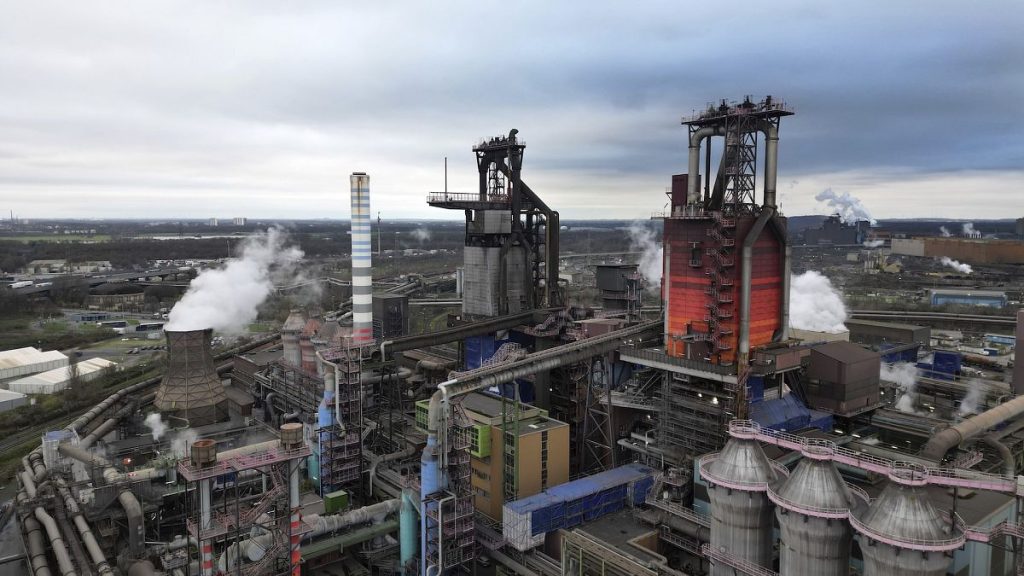Germany’s economic outlook has darkened considerably, with pervasive pessimism gripping businesses across various sectors. The ifo Business Climate Index, a key indicator of German business sentiment, plummeted to its lowest point since mid-2020, reflecting a significant deterioration in expectations for the coming year. This decline is broad-based, impacting manufacturing, services, and trade, and signals a potential prolonged stagnation for Europe’s largest economy. While the assessment of current conditions saw a marginal improvement, the outlook for the future is decidedly bleak, with businesses expressing deep concerns about 2025. This negativity is not merely cyclical; it stems from deeper structural challenges, including a loss of competitiveness in the export-oriented manufacturing sector, high levels of uncertainty regarding economic policy, and a reluctance among businesses to invest. This confluence of factors paints a worrisome picture for Germany’s economic future.
The dismal sentiment pervades all major sectors, with businesses bracing for a challenging 2025. In the construction industry, a significant majority of firms anticipate a worsening business environment, with very few expecting any improvement. Retailers share this pessimism, with a substantial portion predicting further deterioration and only a small fraction expressing optimism. The services sector offers a slightly brighter, albeit still muted, outlook, with a minority of businesses anticipating better conditions, while a larger portion foresee a decline. Manufacturing, a crucial pillar of the German economy, mirrors this downbeat sentiment, with a notable percentage of firms expecting a further decline and the majority anticipating no significant change. This widespread pessimism underscores the depth and breadth of the challenges facing the German economy.
Underlying this pervasive gloom are fundamental structural issues that extend beyond cyclical fluctuations. Germany’s export-dependent manufacturing sector is grappling with a loss of competitiveness, particularly outside Europe. This weakness is exacerbated by high levels of uncertainty surrounding the economic policy framework, which is discouraging investment and hindering growth. The reluctance of businesses to invest further compounds the problem, creating a vicious cycle of stagnation. This stagnation raises serious concerns about the long-term health of the German economy and the possibility of a permanent shift towards a lower growth trajectory. The current economic climate poses a significant challenge for the new German government, which faces the daunting task of revitalizing a struggling economy.
The ifo Institute’s analysis points to a worrying trend of “creeping deindustrialization.” Their baseline scenario predicts a shrinking share of manufacturing in Germany’s total gross value added, with companies increasingly relocating production and investments abroad. This shift away from manufacturing towards less productive services has further implications for productivity growth, which remains weak. The combination of declining manufacturing output and sluggish productivity growth raises serious concerns about the long-term sustainability of Germany’s economic model. The ongoing stagnation, coupled with these structural challenges, presents a significant risk of a prolonged period of subdued economic performance.
The deteriorating economic outlook has had a palpable impact on German financial markets. The euro weakened against the US dollar, reflecting the growing concerns about the German economy. Conversely, German government bonds saw increased demand, pushing yields lower as investors sought safe haven assets. The equity market remained relatively stable, with mixed performance among individual stocks. While some major companies like Airbus, Siemens, and BMW registered gains, others, including Deutsche Post and Rheinmetall, experienced declines. This mixed performance reflects the underlying uncertainty and apprehension surrounding the German economy.
The current economic situation in Germany underscores the complex interplay of cyclical and structural factors. While the immediate outlook remains bleak, the longer-term consequences of these challenges are even more concerning. The combination of declining business confidence, weak investment, and structural vulnerabilities poses a significant threat to Germany’s economic future. Addressing these issues will require a concerted effort from policymakers to foster a more competitive and dynamic economy. The ability of the German government to implement effective policies to address these challenges will be crucial in determining the country’s long-term economic prospects. The current environment demands bold and decisive action to avert a prolonged period of stagnation and ensure the long-term health of the German economy.














